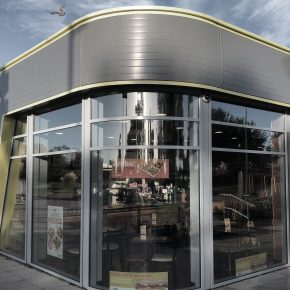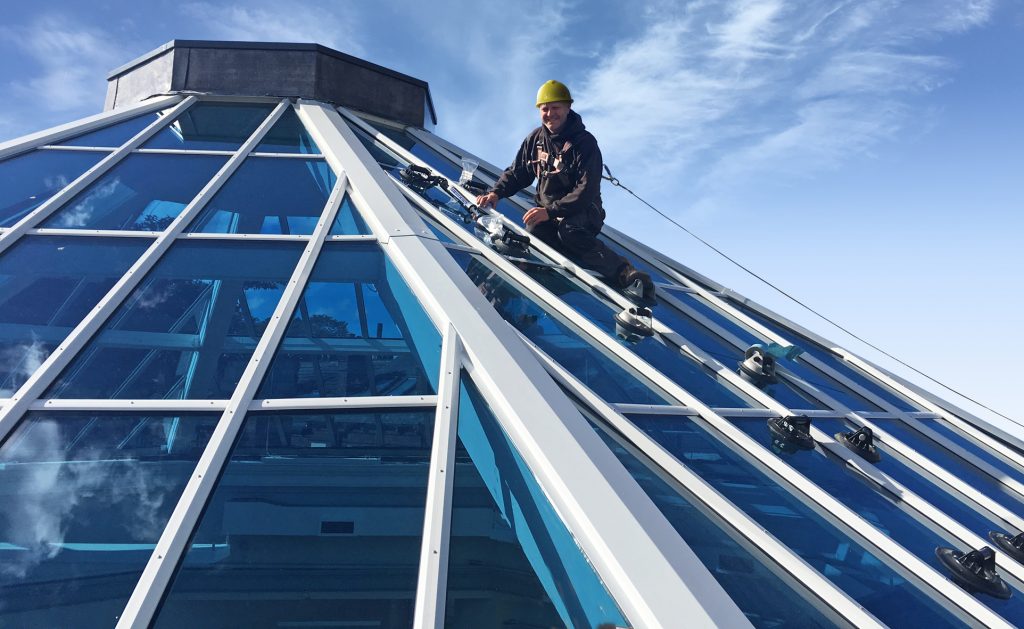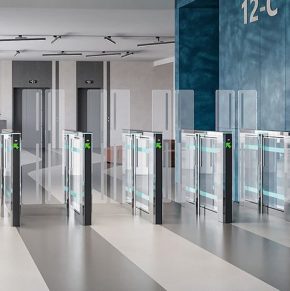
Kestrel: Aluminium – one of the most energy-efficient and sustainable construction materials
This article sees Kestrel Aluminium explore how aluminium is one of the most energy-efficient and sustainable construction materials.
With increasing pressure to specify building systems offering clearly defined sustainability, the use of materials that embody recycling as an inherent feature is becoming increasingly significant.
Aluminium as a key building component is now used across a wide range of sectors and, as a matter of interest, is still very much the most valuable item in our recycling collection.
From an emissions perspective, the use of pre and post-use aluminium greatly reduces energy consumption and adds tangible value to the economics of production. To put this into perspective, it saves around 95% of the energy consumed in the ‘primary’ production process.
For those specifying metal window and door systems, there is, therefore, a clear incentive to use a raw material that can be reused on an infinite basis.
In terms of enabling building designs to achieve the highest level of BREEAM certification, aluminium can also provide tangible benefits when calculating an asset’s environmental, social and economic sustainability through the use of standards developed by BRE. In addition, it enhances specific aspects of technical performance such as thermal, acoustic and energy efficiency.

The use of natural materials, timber, undoubtedly has its supporters but most offer little potential for recycling. Deforestation, dwindling resources and a generally adverse effect on the environment can only become a bigger issue as demand for greater sustainability increases.
Low environmental impact
By contrast, aluminium products made using recycled material present consistently low environmental impact while offering strength, durability, stability and greatly reduced weight compared to steel.
Among the many other benefits aluminium has to offer, natural corrosion and UV resistance enable the specifier to forecast with considerable accuracy the cost of maintenance over a system’s design life.
From a manufacturer’s perspective, working alongside specifiers offers considerable benefits in terms of product development. To achieve greater efficiency in terms of thermal transmittance, high-performance fenestration design is increasing in sophistication. Aluminium can be formed into complex and diverse profile shapes, a feature that makes it ideal for contemporary designs.
Aluminium can be finished using several techniques including Polyester Powder Coating which comes with an abundant selection of RAL colours. For renovation projects, this method of finishing is advantageous as the RAL colour chart offers a colour match to an existing framework to create a cohesive finish to the architectural design.
Powder Coating also offers a protective coating to the aluminium, extending the life of the metal as well as offering a seamless look between horizontal and vertical surfaces great for the aesthetics of any modern building.
Aluminium’s ‘permanence’ and its undoubted flexibility and versatility will pave the way for products of increasing environmental value.
If we add to this the widely accepted ecological argument against the use of PVCu and tangible evidence provided by aluminium window and door systems with a design life that has already spanned several decades the case for its use has never been stronger.
Visit Supplier's page
Latest news

17th April 2025
Nuaire shares expertise at Specifi Mechanical Services events in 2025
Indoor air quality and ventilation manufacturing specialist Nuaire is pleased to be exhibiting at the Specifi Mechanical Services events once again in 2025.
Posted in Air Conditioning, Articles, Building Industry Events, Building Industry News, Building Products & Structures, Building Services, Exhibitions and Conferences, Facility Management & Building Services, Heating, Ventilation and Air Conditioning - HVAC, Restoration & Refurbishment, Retrofit & Renovation
15th April 2025
West Fraser: CaberDek earns top marks from Home Counties carpentry specialist
A specialist carpentry sub-contractor covering housing sites across a large swathe of the Home Counties has come to value CaberDek from the West Fraser range for a variety of reasons: not least because the high quality panel product doesn’t destroy his operatives’ electric saws!
Posted in Articles, Building Industry News, Building Products & Structures, Building Systems, Case Studies, Restoration & Refurbishment, Retrofit & Renovation, Roofs, Timber Buildings and Timber Products, Wooden products
15th April 2025
GEZE: The Role of Access Control Systems in Enhancing Building Safety
Jane Elvins, Specification and Business Development Manager at GEZE UK, delves into the role of access control systems in enhancing building safety…
Posted in Access Control & Door Entry Systems, Architectural Ironmongery, Articles, Building Industry News, Building Products & Structures, Building Services, Doors, Facility Management & Building Services, Health & Safety, Restoration & Refurbishment, Retrofit & Renovation, Security and Fire Protection
11th April 2025
Don’t Do a Dave! It’s Time to Lock FIT Show 2025 in Your Calendar!
It’s that time again – FIT Show is back! You could be forgiven for thinking there won’t be much new to see when FIT Show returns to the NEC from 29 April – 1 May. Wrong!
Posted in Articles, Building Industry Events, Building Industry News, Building Products & Structures, Building Services, Continuing Professional Development (CPD's), Exhibitions and Conferences, Information Technology, Innovations & New Products, Restoration & Refurbishment, Retrofit & Renovation, Seminars, Training
 Sign up:
Sign up: